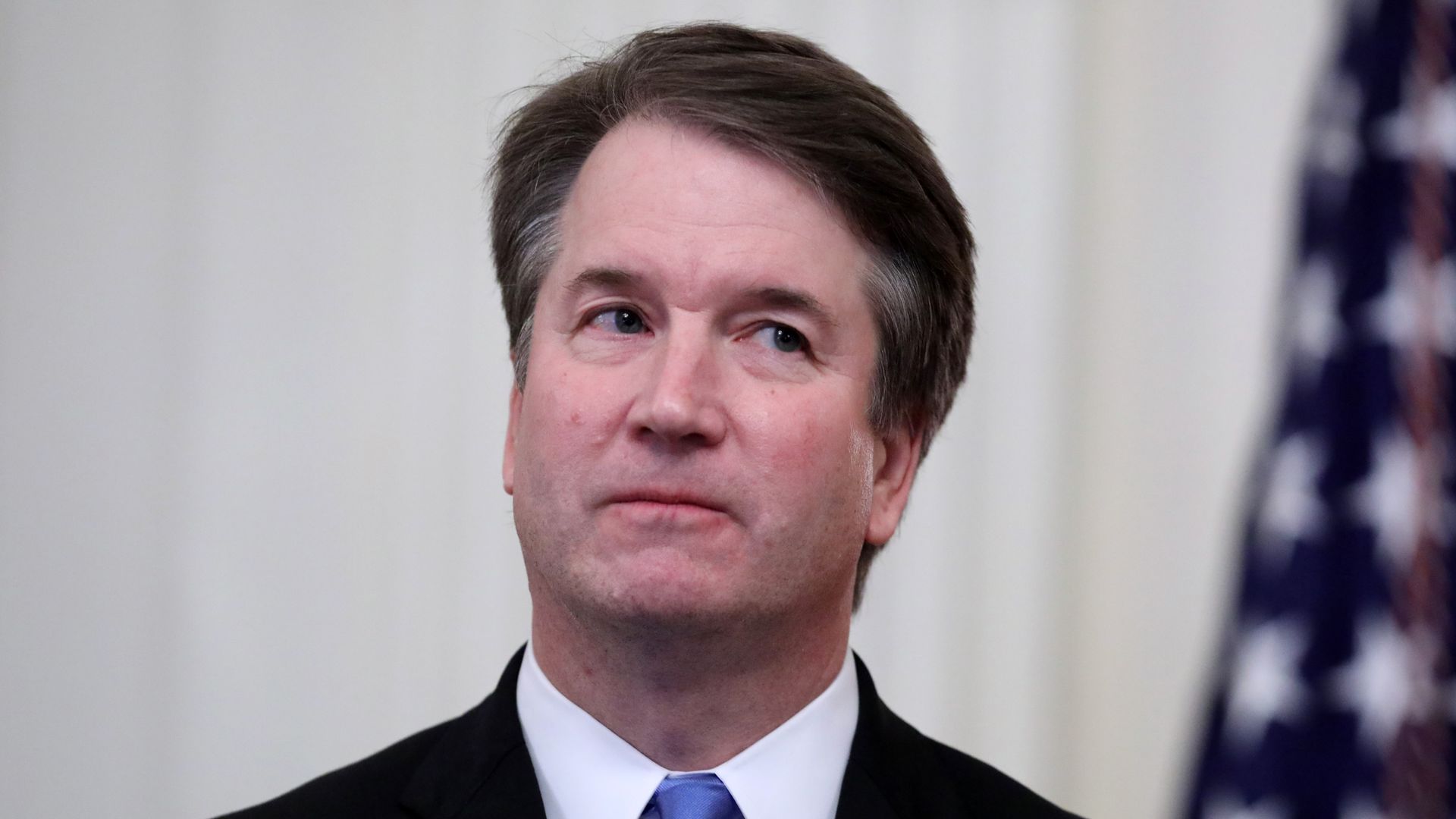Brett Kavanaugh's first big abortion case
Add Axios as your preferred source to
see more of our stories on Google.

Kavanaugh at his swearing-in ceremony in 2018. Photo: Chip Somodevilla/Getty Images
The Supreme Court this week will wade into its first big abortion case since Justice Brett Kavanaugh joined the bench.
Why it matters: It will give us the clearest indication yet of just how quickly and aggressively the newly expanded conservative majority is likely to move in curtailing abortion rights.
- The case has the potential to revive a set of abortion restrictions once thought to be off limits and to energize conservatives to chip away further and faster at Roe v. Wade.
- It could also make abortion rights — as well as the court itself — an even bigger issue in the 2020 campaign.
Driving the news: The court will hear arguments Wednesday over a Louisiana law that requires abortion providers to have admitting privileges at a nearby hospital.
- The state says those rules ensure women’s safety in the event something goes wrong; challengers say they simply force clinics to close without providing any demonstrable benefit to women.
That may sound familiar. Louisiana’s law is nearly identical to one the court struck down just four years ago. The justices said in 2016 that Texas’ admitting-privileges requirements made abortion harder to access but not any safer, and were therefore an unconstitutional “undue burden” on abortion access.
- Yes, but: Those were the Anthony Kennedy days.
The big question now is whether the court’s 2016 decision is a controlling precedent for similar restrictions.
- That’s largely how it was treated at the time. Some states gave up on their admitting-privileges rules, believing they would be unconstitutional, and lower courts struck down others, citing the Supreme Court’s decision.
- But Louisiana is arguing that the Texas decision was only about Texas and “never purported to foreclose a different result on a different record in a different jurisdiction.”
Between the lines: A win for Louisiana would have bigger implications than a loss.
- If the court ultimately says its Texas decision controls this case, and invalidates the state’s admitting-privileges requirement on those grounds, that would largely preserve the status quo. There would still be every reason to expect a rightward shift — just an incremental one.
- If the state wins, though, and the court rules that its Texas decision does not bind other states, then more states will quickly pursue new abortion restrictions and even revive rules they thought the Supreme Court had foreclosed.
- It also could send a broader signal about the court's appetite for abortion cases.
What we’re watching: Kavanaugh matters here because he made the court more conservative by replacing Kennedy — not because he’s seen as a likely swing vote.
- Abortion-rights advocates’ hopes for a win, or at least a narrow ruling, probably lie with Chief Justice John Roberts, who does sometimes prefer incremental change but who voted to uphold Texas’ abortion restrictions in 2016.
- This will, however, be the most significant abortion case of Kavanaugh’s entire career as a judge, so the nuances of how he approaches it — and whether he seems to shy away from an election-year battle over the Supreme Court and abortion — will still tell us a lot about where the court is headed.
A ruling is expected in late June.
